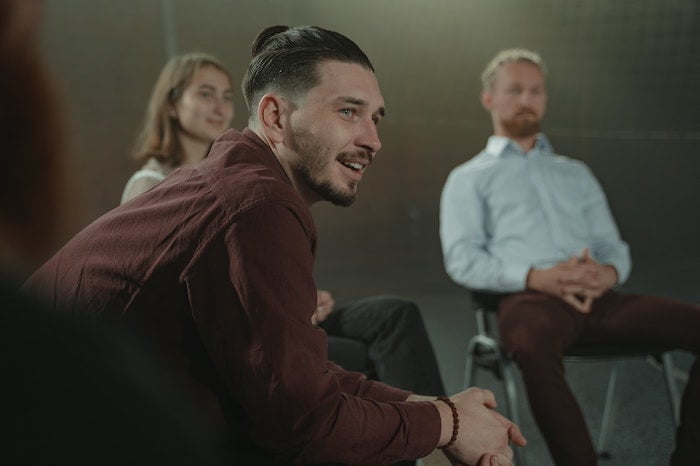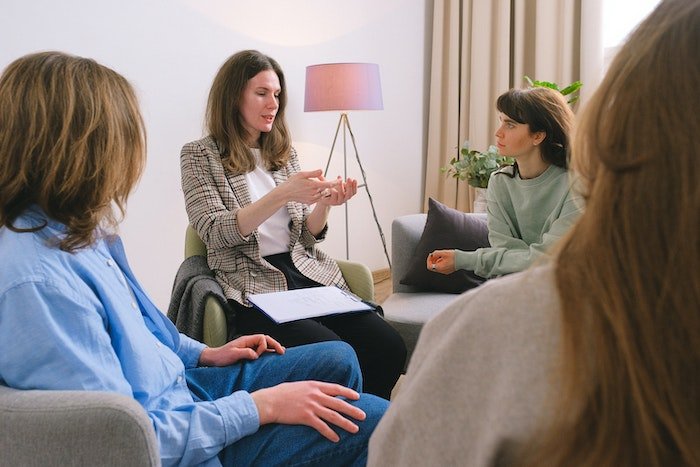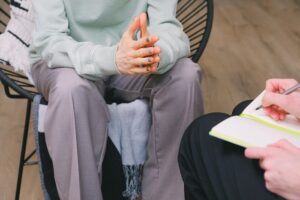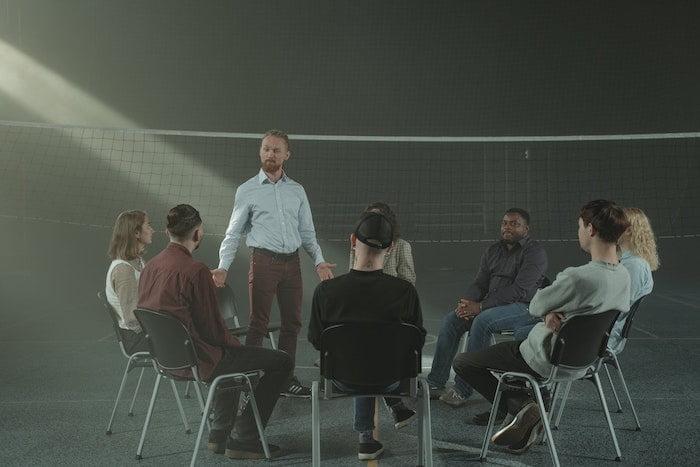Drug and Alcohol Rehab in Norfolk
Quick Links for help with addiction in Norfolk
- What Rehab And Treatment Options Are Available In Norfolk?
- How Much Does Rehab Cost in Norfolk?
- Rehab Duration In Norfolk
Norfolk Insight defines substance dependency as a person having no capacity to control their substance-taking behaviour.
In Norfolk, it is estimated that 3.1% of the population has a substance dependency. 2.3% of this can be attributed to cannabis, and 0.8% to other substances.
The age group with the highest recorded dependencies is 16 to 24 and dependency is higher amongst the male population – 4.3% male against 1.9% female.
In Norfolk, it is estimated that 9.4% of adults (16-59) have used a substance in the past year, 7.6% have used cannabis and 3.7% have used other class A drugs.

It is estimated that there are 9,045 adults in Norfolk with an alcohol dependency, and 4,389 opiate and crack users (OCUs).
Below, we provide some statistics about alcohol and drug use in Norfolk:
| Drug and Alcohol Statistics in Norfolk (2019) | Data |
| Estimated adults in Norfolk with an alcohol dependency | 9,045 |
| Opiate and crack users (OCUs) | 4,389 |
| Percentage of the population that has a substance dependency. | 3.1% |
| Percentage of the population has a cannabis dependency | 2.3% |
For those seeking drug and alcohol rehab in Norfolk, this article will provide useful information – it will discuss what treatment is available, how much it costs, and what to expect from the treatment program.
Call our team today on 0800 326 5559 to begin your recovery journey in Norfolk.
What Rehab And Treatment Options Are Available In Norfolk?
It is recommended, however, that people first speak with their GP in Norfolk.
Not only will they be able to assess medical needs, but they will be able to advise on what treatment options might be best, and what services are available in Norfolk.
Free addiction treatment services in Norfolk include:
1. Norfolk Alcohol and Drug Behaviour Change Service
Address: Adobe House, 5 Barton Way, Norwich, NR1 1DL
Telephone: 01603 514096
Website: https://www.changegrowlive.org/alcohol-drug-behaviour-change-norfolk
2. CAMHS Norfolk
Address: Mary Chapman House, Hotblack Road, Norwich, NR2 4HN
Telephone: 01473 237 055
3. The Matthew Project
Address: 70-80 Oak Street, Norwich, NR3 3AQ
Telephone: 01603 626 123
Website: https://www.matthewproject.org/
Change Grow Live is a free service that helps people based in Norfolk gain access to recovery treatment for drug or alcohol dependency.
Grow Change Live acts as a single point of access to all available services that people with a substance dependency might need.
The help that Grow Change Live can provide includes:
- Advice and information regarding substance dependency and treatment
- Group work
- Therapy and counselling
- Support for affected loved ones
- Volunteering and mentoring
- Medical interventions
- Aftercare
Grow Change Live is accessible via self-referral or through a referral from a professional – a GP, a key worker, or us.

Services that the Matthew Project provides include:
- Advice and information about substance dependency
- Support for families
- Brief interventions
- 1-to-1 support
- Help to back into education and/or work
- Wellbeing
Another free treatment option is to try to access rehab through the NHS.
This will require a referral from a GP or key worker and an application for funding from Norfolk Council.
NHS rehab is reserved for the most severe cases and even then, people are expected to have tried free local services before making an application.
NHS rehab in Norfolk also has a long wait time – on average between 6 months and a year.
However, this means paying for treatment and the cost of private rehab in Norfolk is often expensive.
To learn more about treatment in Norfolk, call our team today on 0800 326 5559
How Much Does Rehab Cost in Norfolk?
On average, however, recently collected data estimates rehab in the UK to cost between £400-£450 per day – roughly £13,000 per month.
Certain programs can be a lot cheaper, however.
For example, Hebron Trust charges £950 per week to attend residential treatment in Norfolk.
This covers staff costs, utilities, food and amenities, and a full course of addiction treatment.

Most private rehab facilities in Norfolk will accept health insurance to pay the costs.
Insurance companies such as Tricare, Aviva, and BUPA all offer health insurance packages that cover private treatment costs in Norfolk.
Although such packages are more expensive than regular health insurance – on average between £150-£200 per month – this is significantly cheaper than covering the cost through personal finances.
In addition, many employers offer health insurance that would cover the cost of private treatment. If you believe that this applies to you, then it is absolutely worth exploring this as an option.
For more advice about paying for rehab in Norfolk, call our team on 0800 326 5559
How Do I Know If I Am Addicted?
However, the signs of addiction are not always obvious. This could be due to inexperienced users not knowing the signs, but also because some signs of addiction might be attributed to other causes.
For example, changes in mood or personality could seem like the result of other life experiences.
However, it is worth covering the most prominent signs of addiction.
These include:
- Changes in personality
- Changes in mood
- Changes in behaviour
- Experiencing withdrawal
Personality changes occur due to the damage substances cause to the brain.
Specific personality changes can include:

In addition, alcohol, cannabis, cocaine and heroin have all been found to damage people’s cognitive functions.
Cognitive functions refer to, for example, thinking, reasoning, remembering, decision making and attention span.
Each of these is negatively impacted by the consumption of substances.
An example of this might be reflected in behavioural changes, such as:
- Risk-taking – engaging in criminal activity, for example
- No longer socialising – unless the substance is involved
- Hiding substance use
- Losing interest in hobbies
- Becoming messy and unhygienic
Another clear indicator of addiction is if people become unwell when not taking the substance – this is known as withdrawal.
Withdrawal occurs when the mind and body crave the substance. The body will begin to detox without the substance, which can lead to withdrawal symptoms.
The specific symptoms vary between substances but can include nausea, vomiting, fatigue, restlessness, anxiety and sweats.
To help uncover if substance dependency has emerged, there are useful tools available.
The CAGE questionnaire is an example of this.
CAGE is an acronym for:
- C – Cutting Down
- A – Annoyance by Criticism
- G – Guilty Feeling
- E – Eye-openers
Based on this acronym people are asked a series of yes/no questions that help the person think about their substance use and habits.
For alcohol, these are:
- Have you ever felt you should cut down on your drinking?
- Have people annoyed you by criticizing your drinking?
- Have you ever felt bad or guilty about your drinking?
- Have you ever had a drink first thing in the morning to steady your nerves or get rid of a hangover (eye-opener)?
For drugs, the questions are:
- Have you ever felt you should cut down on your drug use?
- Have people annoyed you by criticising your drug use?
- Have you felt bad or guilty about your drug use?
- Have you ever used drugs first thing in the morning to steady your nerves or to get rid of a hangover (eye-opener)?
Anyone answering yes to two or more of these questions should seek out help in Norfolk.
To learn more about diagnosing addiction in Norfolk, call us today on 0800 326 5559
Pre-Rehab: Substance Dependence Intervention In Norfolk

Substance dependency can harm people in many ways. One such way, as previously noted, is that it damages cognitive functions – for example, the ability to think clearly and understand that professional help is needed.
From the perspective of concerned others, this can be worrying. They will want their loved ones to seek help and address their addiction properly.
For those with a loved one with substance dependency, a common question is: how can I get my loved one to seek help?
A good answer to this question is to organise an intervention.
As the name suggests, an intervention in Norfolk seeks to intervene in the person’s substance dependency.
It has several goals, such as encouraging the person to seek professional help, enter treatment, and take accountability for their substance use in Norfolk.
It also provides concerned others with an opportunity to express their feelings and show how their loved one’s addiction has impacted them.
For guidance in conducting an intervention in Norfolk, call us on 0800 326 5559
Experts suggest that there are three important aspects to organising a successful intervention:
- Persuasion – Convincing the loved one that they need help in Norfolk.
- Accountability – That the loved one is responsible for their dependency and, therefore, it is up to them to change.
- Enabling – Addressing behaviours that have allowed the loved ones to become dependent, such as lending money or providing accommodation.
This is a difficult process, so there are some useful tips to remember when preparing for an intervention.
These include:
- Take the time to plan the intervention.
- Practice positive communication and what you want to say.
- Write down what you want to say.
- Remember to be encouraging and not to condemn.
- Do some research on interventions and substance dependency.
- Seek the help of a professional interventionist.
The last point – seeking the help of a professional – is highly recommended.
A professional – interventionist, social worker, key worker, or psychologist, for example – will be able to help organise and plan the intervention in Norfolk.
They can also act as mediators which will help reduce the potential for confrontation.

Another recommendation is the Community Reinforcement And Family Training (CRAFT) method.
CRAFT is aimed at families that are struggling to get their loved ones to seek help in Norfolk.
The CRAFT method was developed for two reasons: to help families conduct successful interventions, and to avoid confrontation through the use of positive reinforcement.
This is achieved by focusing on several key goals, such as:
- Reducing the frequency of the addiction.
- Helping families reinforce positive behavioural changes.
- Developing positive communication tools.
- Being proactive and using problem-solving to address substance dependency.
- Helping families learn about potential triggers and how addiction occurs.
CRAFT is home-based and a professional will conduct several sessions with these goals in mind.
CRAFT is a gradual process that usually lasts for several months in Norfolk.
For help using the CRAFT intervention method in Norfolk, call our team today on 0800 326 5559
Rehab Duration In Norfolk
Unfortunately, there is no specific answer for how long rehab will last. In general, however, people can expect to be in rehab for several weeks to several months.
Most facilities recommend a minimum of 28 days.
Experts suggest that, on average, rehab in Norfolk takes:
- Between 1 week to 3 months for alcohol
- Between 1 week to 1 month for cannabis
- Between 3 weeks to 3 months for heroin.
This can vary, however. The reason being is that the duration of rehab in Norfolk is based on several factors:
- The substance being treated
- How long the person has used the substance
- If the person has other medical issues
- The treatment type – inpatient vs outpatient, for example
- The type of therapy required
Treatment for heroin and alcohol is likely to be more arduous than treatment for a substance like cannabis.
This is due to the nature of the addiction being more complicated, and so the rehab process would take longer.
As mentioned, a big part of the duration is the type of treatment.
Examples of this include inpatient vs outpatient treatment.
Inpatient is residential – staying overnight at a facility – and is therefore more intense.
The result is that it usually lasts for a shorter period than outpatient treatment, which does not require the person to live at the facility.
Instead, outpatient treatment is fitted around a person’s life and requires attending weekly appointments.
On average, inpatient treatment lasts for 1 month, whereas outpatient treatment can last for several months to a year.
Again, this is dependent on the person’s needs.
For a more accurate estimation of how long rehab in Norfolk will last for you, call our team today on 0800 326 5559
Pre-Admission And Entering Drug And Alcohol Rehab In Norfolk

Before entering rehab, people will be subject to a pre-admission interview.
This will involve a phone call with one of the facilities’ staff members – usually a medical professional.
This is a formality to determine the person’s needs, preferences, and what kind of treatment will be best suited to them.
The phone call will go over some of the person’s substance uses and habits – the substance to be treated and how long they have been using, for example.
A start date will also be discussed, and what to expect from the treatment program.
When the treatment does start, the first stage is a medical examination.
This is aimed at uncovering any existing mental or physical health issues.
This will help inform the staff of any possible needs and medications required during the detox process.
To learn more about what to expect from rehab in Norfolk, call our team on 0800 326 5559
Should I Seek Private Treatment in Norfolk?
Within Norfolk, there are many forms of treatment, such as community groups, as well as public and private options.
Whilst the National Health Service offers drug and alcohol addiction treatment, you are usually placed on a waiting list that can last up to 12 months or longer.
If your addiction is severe, you may not have this time to wait.
Demand for free services is very high, and there are sadly limited funds. Deciding to seek private care means you can avoid long waiting lists and begin treatment as soon as possible.
For more guidance choosing between private and public rehab, call our team today on 0800 326 5559
What Is Dual Diagnosis?
It is also likely that part of the medical examination will involve checking for dual diagnosis.
Dual diagnosis is a term used to describe a person that has both substance dependency and mental health issues.
Unfortunately both go hand in hand, with one often leading to the other.
Substance dependency is known to increase the chance of people developing mental health issues.
Substances such as alcohol, heroin, cocaine and cannabis can all lead to mental health problems such as anxiety and depression.

On the other hand, studies have also found that substances are commonly used by people to help cope with and alleviate mental health issues.
In a recent study on cannabis and depression, for example, many people stated that they used the substance to help improve their overall mood.
The consequence of this is that prolonged use of any substance increases the risk of substance dependency.
Dual diagnosis, therefore, is important for treatment – it helps determine the cause of addiction, the medication that might be used, and what therapy might be helpful.
Many organisations across the UK offer free mental health support, whether you are also suffering from addiction or not.
Some of the most useful include Mind UK, Young Minds, Rethink Mental Illness, Samaritans and Papyrus.
To learn more about how rehab in Norfolk can support your mental health, call us today on 0800 326 5559
Rehab For Alcoholism In Norfolk
The medical assessment stage is then followed by the detoxification stage.
As previously mentioned, this is the process of the body removing the substance from its system.
This leads to a variety of withdrawal symptoms, ranging from mild to severe.
Alcohol withdrawal is medically known as Alcohol Withdrawal Syndrome (AWS) – this usually occurs between 6-12 hours after the final consumption.
AWS symptoms include:
- Nausea
- Vomiting
- Tremors (shakes)
- Sweats
- Restlessness
Mild symptoms will continually reduce over 24 hours, but some might persist for several days.
More serious symptoms include:
- Seizures
- High blood pressure
- Respiration issues
- Delirium Tremens
People will likely receive medication to help with AWS, such as a Librium.
Librium helps reduce anxiety, disturbed sleep patterns and loss of appetite.
To start your recovery journey from alcohol addiction at a Norfolk rehab today, call us on 0800 326 5559
Rehab For Cannabis, Cocaine And Heroin In Norfolk

Cannabis withdrawal is relatively mild and does not require medical assistance.
Symptoms include restlessness, agitation, headaches, a loss of appetite and anxiety.
Although cannabis can stay in a person’s system for up to six months, withdrawal symptoms usually subside within several days.
Cocaine withdrawal is mostly psychological – paranoia, anxiety, stress, irritability, for example – although some physical symptoms might occur, such as sweats and tremors.
Symptoms from cocaine can occur quickly – sometimes only an hour after the final dose.
In most cases, however, symptoms will peak between eight-to-twelve hours after the final dose.
Symptoms from cocaine withdrawal often last between five-to-seven days.
Heroin is considered by medical experts to be one of the hardest detoxes – this is due to it being very psychologically and physically addictive.
At best, the symptoms are still very unpleasant, including gastrointestinal issues, sweats, fatigue, anxiety, stress, and even hallucinations.
Symptoms will begin to show between three-to-six hours after the final dose and usually last up to five days.
However, some symptoms will reduce after 24 hours.
More serious symptoms can be life-threatening, such as seizures, respiration issues, and high blood pressure (hypertension).
Because heroin detox can be dangerous, people will rarely do it without medical assistance.
Most people will be prescribed opioids, such as Methadone or Subutex.
To find out more about the various addictions we can help you overcomes, call our team today on 0800 326 5559
What Therapy Will I Receive During Drug And Alcohol Rehab In Norfolk?
During rehab, people will undergo therapy.
Popular therapies in drug and alcohol rehab in Norfolk include:
- Cognitive Behavioural Therapy (CBT)
- Dialectical Behavioural Therapy (DBT)
- Motivational Interviewing (MI)
- One-To-One Therapy (talk therapy or psychotherapy, for example)
- Holistic Therapy (art, music, equine therapy, yoga, for example)
- Group Therapy
- Family Therapy
These are some of the different types of therapy. However, each shares a relatively similar goal: to uncover the cause of addiction, to help overcome the addiction, and to provide useful tools to maintain well-being and sobriety.
The most common therapy is talk therapy.
This will involve the person sitting with a medical professional and discussing the reasons why the addiction might have occurred – past traumas, family issues, past or present relationships, and social or economic issues, for example.
Trained professionals will listen and use up-to-date research to inform their analyses.
Another popular therapy is CBT. The purpose of CBT, in essence, is to teach the person cogitative reappraisal, that is, the ability to change thought patterns.
By doing so, the person should be able to change negative thoughts that might have led to harmful behaviours such as using a substance.

Most rehabs also employ some form of group therapy. This involves sitting with a medical professional and several peers.
Group therapy provides an opportunity to share experiences and struggles related to substance dependency and treatment.
Group therapy has been proven to help encourage accountability and alleviate feelings of loneliness.
To learn more about the various treatments available in Norfolk, call our team on 0800 326 5559
What Can Holistic Treatments Do in Norfolk?
Holistic treatments can be very beneficial to you when you are in recovery. These forms of therapy can ensure that your psychological and spiritual needs are met as well as your physical.
Often these forms of treatment are more niche than traditional forms of therapy and can include things such as:
- Art and Music Therapy – This can allow you to explore your thoughts and feelings by creating pieces of art or music
- Acupuncture – This involves stimulating nerves under the skin and in the muscles, which helps to release endorphins. This can be a great treatment when recovering from a drug or alcohol addiction as it helps the brain feel happier and more content.
- Meditation and Yoga – Both of these are great skills to learn and can allow you to create a sense of calmness and inner peace. Meditation can help reduce feelings of anxiety and cravings for substances. This is a skill that can be extended to your life outside of a treatment clinic.
To learn more about holistic and alternative treatment in Norfolk, call us on 0800 326 5559
Relapse Prevention And Aftercare In Norfolk
Although rehab often has a high success rate, people are still at risk of falling back into old habits and behaviours.
Substance dependency emerging again after rehab is known as relapse. Preventing this is an important part of the rehab process.
Following detox and whilst undergoing therapy, medical professionals will assist people in developing a relapse prevention plan.
This involves two main things in Norfolk:
- Uncovering potential triggers – Environments, relationships, and situations
- Developing relapse prevention tools – Cognitive reappraisal, mindfulness and emotional management

Image above: Group therapy at a drug and alcohol rehab in Norfolk
Relapse prevention also involves establishing post-rehab aftercare. Every rehab in Norfolk that we recommend will offer aftercare.
This means continued support, often involving post-rehab therapy and engaging with local services.
For example, this might involve being part of therapeutic communities such as Alcoholics Anonymous, Narcotics Anonymous and Cocaine Anonymous.
These organisations offer group therapy and their version of the 12-step recovery method.
Another example of services available that provide useful aftercare is SMART recovery.
SMART Recovery offers many different aftercare services, such as CBT, group therapy, and Motivational Interviewing.
For more information about SMART, check out their website.
To learn more about relapse prevention and aftercare services in Norfolk, call us on 0800 326 5559
Call OK Rehab Today in Norfolk
Get in touch with a member of our team today at 0800 326 5559. Our team are friendly and trained to a very high standard, meaning every conversation you have with us will always remain confidential.
Our helpline advisors are here to listen and can offer you free advice at all times.
If you have read the above information about rehab in Norfolk and are ready to commit to a new life free from substance abuse, what are you waiting for?
We understand that choosing to go to rehab is a big decision, but we promise to stand by your side throughout this journey.
Only you can choose to leave substances behind. Are you ready to step into a more positive future? Are you choosing to recover for yourself? Are you wanting to actively seek out a better life for yourself?
We can help take the stress out of finding effective treatment, enabling you to seek treatment as soon as possible.
Every rehab in England and Wales that we work with is vetted by the Care Quality Commission.
Get help for addiction across Norfolk including in Norwich, King’s Lynn, Great Yarmouth, Thetford, Aylsham, Acle, Holt, Fakenham, Cromer, North Walsham, Attleborough, Hunstanton, Burnham Market, Sheringham, Wells-next-the-Sea, Swaffham, Dereham, Wymondham, Diss, Blakeney, Downham Market, Costessey, Wroxham and many others.
Reach out for help in Norfolk today. Call our team on 0800 326 5559





